english.alaraby.co.uk — Lebanese songstress Haifa Wehbe, who has previously courted controversy for performances deemed too sexy, will be performing in the Gulf kingdom for the first time next week. Haifa Wehbe is to perform in Saudi Arabia for the first time next week, alongside fellow Lebanese songstress Elissa. The two singers – among the most famous […]
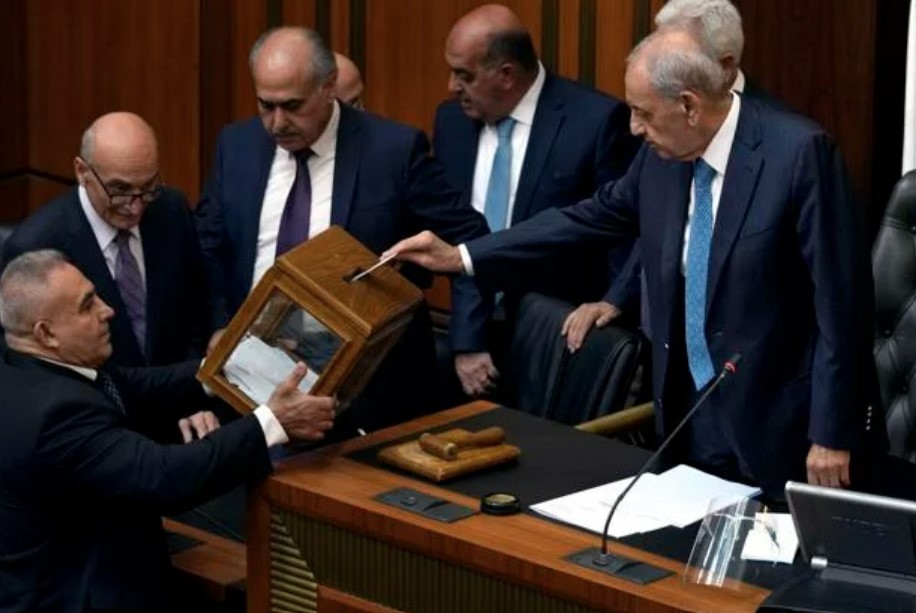
By Jamie Prentis — thenationalnews. — Lebanese politicians failed for a third time to elect the country’s next president on Thursday with no candidate receiving enough votes, only 11 days before the term of incumbent Michel Aoun ends. Parliamentary speaker Nabih Berri said the next election session in the 128-seat chamber would take place on Monday. In the first polling round, which took place in late September, a two-thirds majority was required to win. But an absolute majority is needed in subsequent votes. Of the 119 votes cast, 55 were blank and 17 for “New Lebanon”. MP Michel Moawad, who received the most votes in the first round with 36, increased his share to 42 — but that was nowhere near the threshold needed to be elected Lebanon’s next president. “It is clear that one camp comes to elect a president while another attends the sessions just to hide its desire to block them,” said Mr Moawad, a staunch critic of the Iran-backed armed group and political party Hezbollah.
Will the Lebanon-Israel maritime gas deal shore up Aoun’s legacy? Mr Moawad, whose father Rene served as president for 18 days in 1989 before being assassinated, described himself as the only “serious candidate”. He has received the support of parliament’s largest party, the Lebanese Forces, the Kataeb Party, the Druze Progressive Socialist Party and a handful of independent MPs. Among the big names not to back a candidate yet are Hezbollah, Mr Berri’s Amal Movement, and the Free Patriotic Movement, which was founded by Mr Aoun.
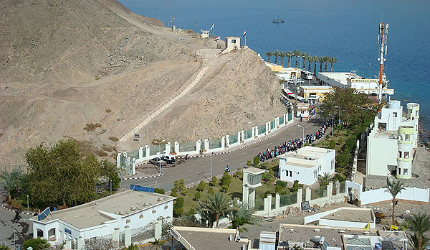
By Laila Bassam & Maya Gebailey — BEIRUT, (Reuters) -Before Lebanon’s government approved a U.S.-brokered deal settling a decades-long maritime boundary dispute with Israel, the powerful Hezbollah had scrutinized the final draft line by line and given a crucial nod of acceptance. Branded a terrorist group by Washington and a sworn enemy of Israel, the Iran-backed Hezbollah was certainly nowhere near the negotiating room during U.S. shuttle diplomacy which clinched the landmark deal last week. But behind the scenes, the heavily armed group was being briefed on the details and expressing its views even as it threatened military action were Lebanon’s interests not secured, according to sources familiar with Hezbollah’s thinking, a Lebanese official and a Western source familiar with the process.
An unprecedented compromise between the enemy states, the deal opens the way for offshore energy exploration and defuses one source of potential conflict between Israel and Hezbollah. Observers say the deal was all the more significant for the pragmatism shown by Hezbollah, pointing to the shifting priorities of a group set up four decades ago by Iran’s Revolutionary Guards to fight Israel. “The Hezbollah leadership scrutinized the understanding line by line before agreeing to it,” said one of the sources familiar with the group’s thinking.
After spending much of the last decade deploying fighters and military expertise across the Middle East to help Iran’s allies, notably President Bashar al-Assad of Syria, Hezbollah’s focus is today squarely on Lebanon – a country in deep crisis. More involved than ever in state affairs, Hezbollah has said offshore oil and gas are the only way for Lebanon to emerge from a devastating financial meltdown that has hit all Lebanese hard, including its large Shi’ite constituency. Though Hezbollah says it does not fear war with Israel, the group has also said it does not seek one with a formidable foe which staged major invasions of Lebanon in 1978 and 1982. Lebanon took years to rebuild from the last war in 2006 – much of the bill paid by Gulf Arabs who have since shunned Beirut because of Hezbollah’s sway. And while Tehran’s support remains strong, Western sanctions have squeezed the amount of cash Iran can send the group.
by bolnews.com — The Lebanese parliament passed a new set of modifications to a financial secrecy law on Thursday after the International Monetary Fund stated that a prior proposal remained deficient in significant ways. Lebanon must undertake a list of measures, including revising its banking secrecy law, before gaining access to $3 billion to alleviate […]
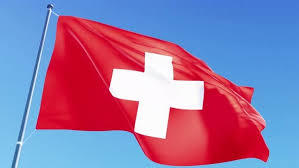
by naharnet — The Swiss embassy in Lebanon on Monday announced the postponement of a dinner that was supposed to bring together Lebanon’s main political parties, after unconfirmed media reports about the event stirred political controversy in the country. “Switzerland has been actively engaged in Lebanon for many years including in conflict prevention and peace promotion. Over the last couple of months, Switzerland, in collaboration with the Swiss based organization Centre for Humanitarian Dialogue, was in contact with the full spectrum of political Lebanese as well as regional and international actors to prepare for consultative discussions, not for a dialogue conference,” the embassy said in a statement. “It is Switzerland’s tradition to offer good offices when asked to do so.
The planned discussions are the result of previous consultations with the full spectrum of political Lebanese as well as regional and international actors, and in full respect of the Taef agreement and the Lebanese constitution,” it added. It also said that “the informal dinner that was supposed to take place this Tuesday at the Swiss residence aimed to further brainstorm with various Lebanese political actors,” adding that “the names circulated in the media do not reflect the actual invitees.” “The dinner has been postponed to a later date,” the embassy added.
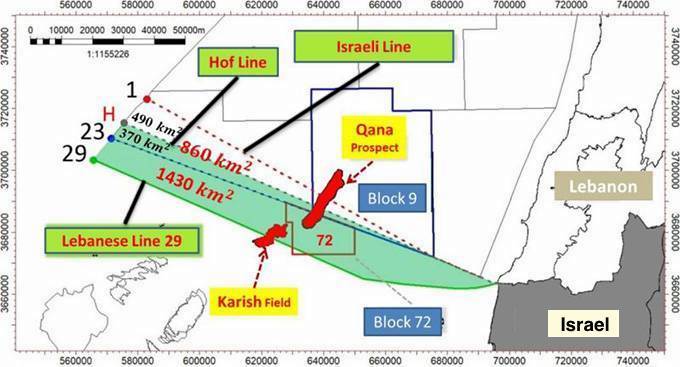
NNA – Deputy Speaker of the House Elias Bou Saab, commissioned by the President of the Republic to administer the dossier of southern maritime border demarcation negotiations with Israel, revealed to “Al-Hurra” TV channel the expected date for the completion of the demarcation agreement and the mechanism by which the agreement will be signed. He said: “The intelligence in this agreement stems from the understanding of the American mediator, Amos Hochstein, of the Lebanese situation and the inability to conclude an international treaty with Israel because it is an enemy state for Lebanon. Hochstein took this matter into consideration and found a creative way by concluding an agreement between America and both Israel and Lebanon that defines the points on which the consensus was reached. These are the points that the United States has included in a letter it will send to both Lebanon and Israel. Lebanon will respond by agreeing in writing to the content of the letter, and Israel will respond in the same way.” Bou Saab continued to indicate that the letters may be delivered on the 26th or 27th of this month under the flag of the United Nations in Al-Naqoura. Asked about who will be signing on Lebanon’s behalf, Bou Saab replied, “This decision is taken by the President of the Republic and he will choose the team that will head to Naqoura to present the letter.”
On the content of the call that US President Joe Biden held with President Michel Aoun, Bou Saab said, “It was an important and lengthy call in which the American president touched on the next stage and promised that the American side would be keen to ensure that the Israeli side respects the signed agreement.” Bou Saab emphasized that “this agreement will open up for Lebanon a new horizon of foreign investments that create job opportunities for the Lebanese.” “President Biden thanked President Aoun for his efforts, assuring him of his country’s support for Lebanon to ensure its transition to a new stage,” Bou Saab added, considering that “Biden’s words constitute a new openness to Lebanon.” He continued, “It is true that the agreement is the basis, but there is something behind the agreement in terms of gas extraction and openness. We will see on Monday or Tuesday a statement from the Security Council welcoming what has been accomplished and stressing that it is an opportunity of hope for the Lebanese, their economy and their prosperity.”
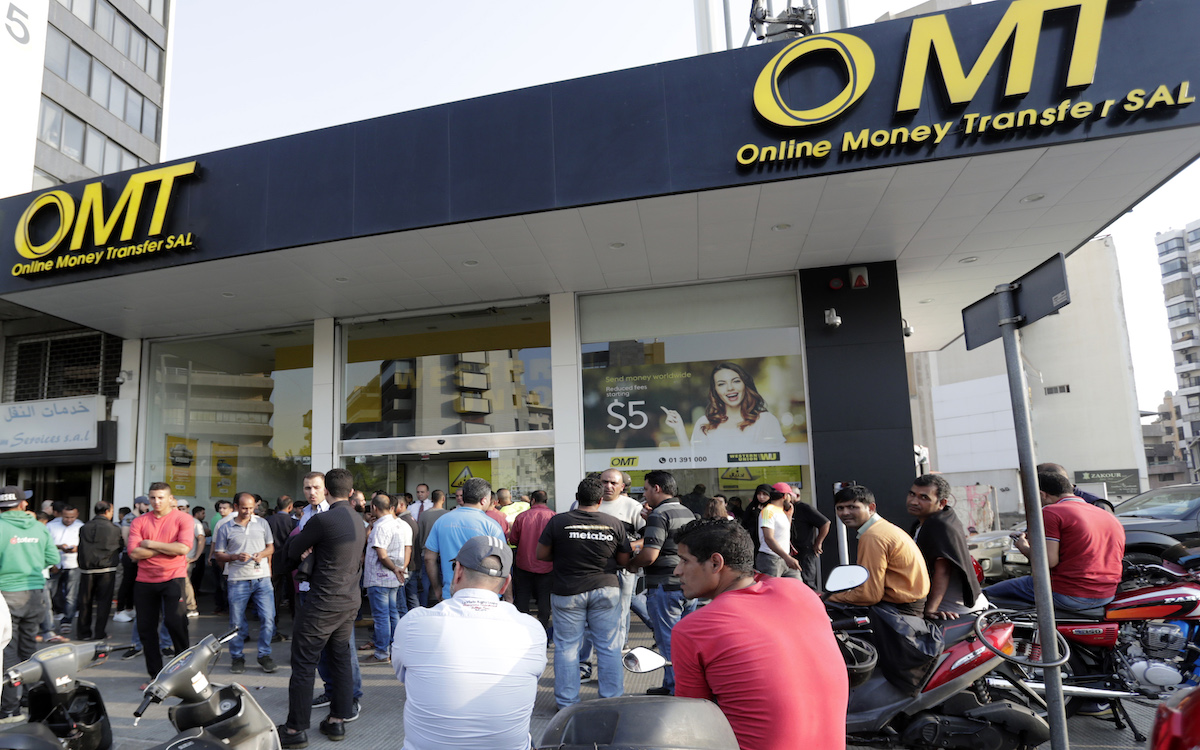
By Samara Azzi — nowlebanon.com — “When the coffers are empty and there is a need for more money there is printing of money, which devalues the currency. When you have financial problems, polarity will increase, and so does populism of the left and populism of the right. This can produce a period of disorder and can eventually lead to civil war.” Ray Dalio Once dubbed the Switzerland of the Middle East for its robust banking system, Lebanon’s fiscal disrepute has shocked global banking regulators. Since the start of the uprisings in October 2019, 59 cash-strapped banks have shut their doors on depositors for the first time in Lebanon’s history, just ahead of a government default on its national debt. An alternative cash-based system emerged – one with ties directly to the ruling party, the Free Patriotic Movement (FPM), and Hezbollah. It is controlled by those who are at present the ruling majority, and are appointed to find a solution through an agreement with the International Monetary Fund (IMF) for the 70 billion USD loss of depositors’ money.
For the last twenty years, the United States has failed to curb Hezbollah’s meddling in the banking system. Three banks were shut down in Lebanon when discovered by the US treasury to have had ties to Hezbollah and its Syrian allies, and engaged in money laundering activities. Bank Al Madina, Lebanese Canadian Bank, and Jammal Trust Bank are three examples of how Hezbollah has tried over many years to infiltrate the Lebanese banking system. All three banks were shut down by Banque du Liban, the central bank of Lebanon, following orders from the US treasury. But, surprisingly, with all the surveillance the US treasury had placed on Lebanese banks over the years to clean up their act, Hezbollah and their allies have since managed to outmaneuver and outsmart the US treasury and its sanctions and seize total control over the entire monetary system in Lebanon.
Welcome to the newly emerged “cash-based” economy, where Qard El Hassan is the only financial institution still standing. What you have in Lebanon right now is a cash remittance system where all cash flowing into the country is controlled by a few groups and individuals taking large commissions – and those same people are charged with reforming the banking system. So, what incentive does the current profiteering government have to reform the system? How can a sanctioned political party/militia and the sanctioned leader of another ruling party be incentivized to reform the system if it takes profit out of their own pockets?
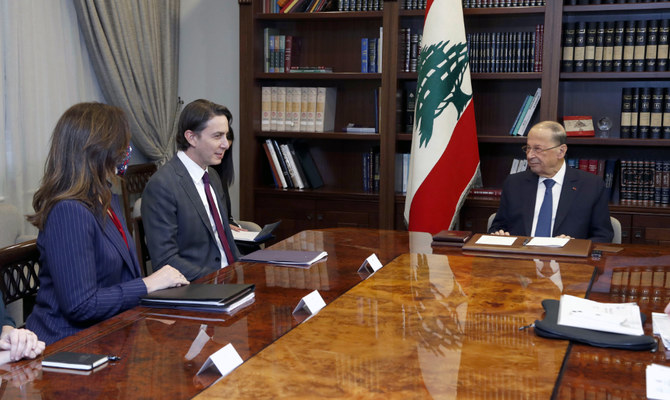
By TAREK ALI AHMAD — Arabnews.com — LONDON: Ten years after the US began its mediation efforts, Lebanon and Israel have finally reached an agreement delineating their maritime border in what pundits are describing as a “historic” moment. However, some observers are taking a more cautious view. “It’s at least 10 years overdue,” said Ambassador Frederic Hof, a former director of the Atlantic Council’s Rafik Hariri Center for the Middle East, who served as US mediator in 2012 under President Barack Obama. “We need to be cautious at this point. There is still an elongated ratification process in Israel. There is a question of whether, after the Nov. 1 elections, the deal would be sustained if there’s a change in government,” he told Arab News. “On the Lebanese side, there are a couple of questions. The obvious question is: Are there indeed marketable natural gas deposits under Lebanese waters? And, given the fact that there will not likely be any revenues for five years, will the Lebanese political system undergo some changes that would enable the Lebanese people to benefit from all of this?” The dispute goes back to 2012, when the two countries failed to reach an agreement over the location of their shared maritime border. Israel initially pushed for Line 1 (see map), while Lebanon favored Line 29.
Hof, who was the first US mediator appointed to the process, proposed a line that lay closer to the Israelis’ preferred option. In the end, however, the border that was agreed is Line 23, which is closer to Lebanon’s preferred boundary. At the heart of the dispute are two offshore natural gas fields: the untapped Qana field in Lebanon’s territorial waters and the Karish field in Israeli territory. The contested claims to the resources escalated in July when Hezbollah, the Lebanese Iran-backed militia, launched a drone attack on the Karish field. Israeli air defenses managed to shoot down all three drones before they reached their target. It is hoped this week’s border agreement will stave off similar incidents. According to leaked details of the deal, revenues from gas extracted from the Qana field will be split between Lebanon and French energy company Total, and 17 percent of Total’s revenues will go to Israel. Israel will continue to have exclusive rights to the Karish field. Although the deal settles the maritime border issue, it does not affect the yet-to-be recognized land border between the two countries, the so-called Blue Line that was demarcated in 2000 and is supervised by the UN Interim Force in Lebanon.
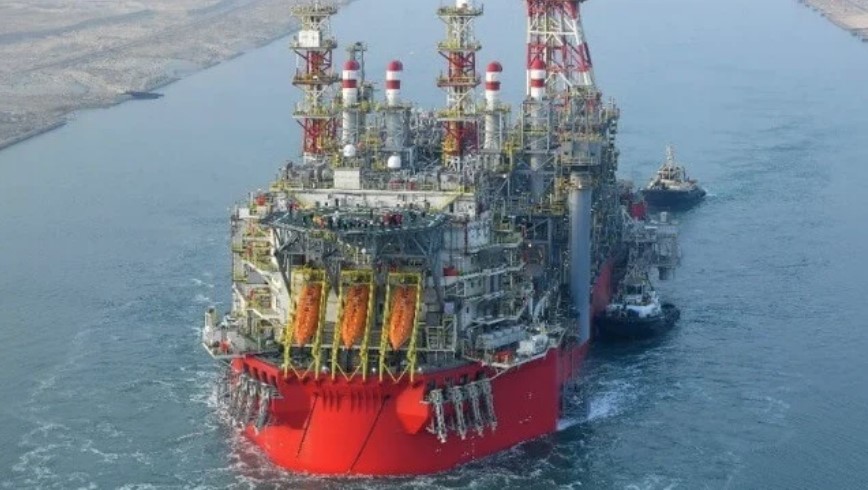
PUBLISHED BY THE LOWY INTERPRETER — [By Rodger Shanahan] — There has been little to cheer about of late in terms of positive developments towards peace in the Middle East. But this week, the news came from an unexpected source – relations between Lebanon and Israel. An agreement demarcating a maritime boundary between the two countries allows for the exploitation of gas and oil fields below the waters of the Mediterranean. A decade in the making, this important agreement, when ratified, holds the potential to lead Lebanon out of its economic misery. It also could establish a blueprint for negotiations that may lead to further reductions in tension between the two countries. It is right to treat the good news with some caution though. So many things could diminish the potentially positive outcomes contained in the agreement.
First, and perhaps most importantly, the agreement is by no means a panacea for Lebanon’s economic ills, which are so systemic that no potential windfall from Mediterranean oil and gas is likely to alleviate them. The degree to which servicing personal patronage networks, rather than pursuing the national interest, remains the focus of many Lebanese politicians is best illustrated by the government’s unwillingness to undertake the necessary reforms negotiated with the International Monetary Fund despite the country facing its worst economic crisis since the civil war.
Another reason for not bringing out the party whistles just yet is the fact that any potential windfall from offshore oil and gas deposits for Lebanon is both uncertain and, if viable, would be years away from realisation. And one of the potential gas fields (Qana Prospect) lies across the agreed maritime boundary (Line 23 in the map) and the remuneration for Israel’s share of the profits from the field will be decided between the commercial operator of the field (exploiting the field on behalf of the Lebanese government) and the Israeli government.
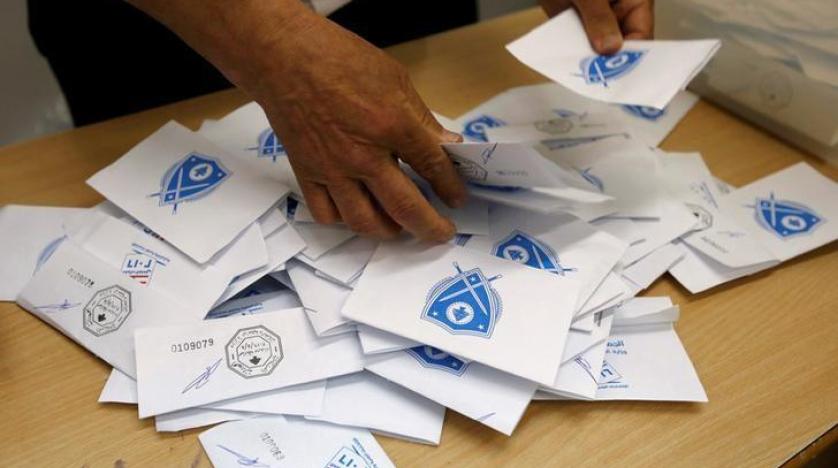
By Jamie Prentis — thenationalnews.com — Lebanon’s parliament has failed for a second time to elect the country’s next president, with not enough MPs present to reach the quorum. Speaker Nabih Berri adjourned the house until October 20, less than two weeks before the term of incumbent Michel Aoun expires. With a consensus candidate yet to emerge, the prospect of a presidential vacuum looms. An attendance of two thirds — or 86 MPs ― in the 128-seat Parliament is required to meet the quorum. But only 71 were present in the deeply divided chamber on Thursday. Lebanese Parliament fails to elect new president in first round of voting
This is the second time that MPs have failed to elect Lebanon’s next head of state after no clear winner emerged during a vote at an initial session on September 29. On that day, MP Michel Moawad, whose father Rene served as president for 18 days in 1989 before being assassinated, received the most votes, with 36. He was mainly backed by a grouping of MPs who are critical of Iran-backed Hezbollah, the armed group and political party that has significant sway in Lebanon. “We are ready at any time to elect a president but it is clear today that several parties are not ready for the presidential election because of differences,” said Georges Adwan, a senior MP in the Lebanese Forces party.
The LF, a staunch critic of Hezbollah, supported Mr Moawad in the last round. In the first polling round, a two-thirds majority is required to win. But only an absolute majority is needed in subsequent votes. The failure to find a successor to Mr Aoun, 89, in the first two rounds was not unexpected and has precedent — it took 46 sessions and 29 months for parliament to elect the former army commander in 2016.



